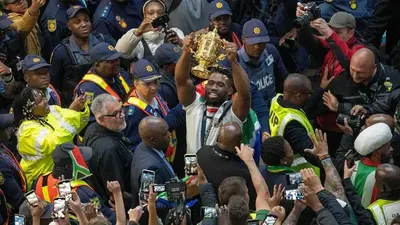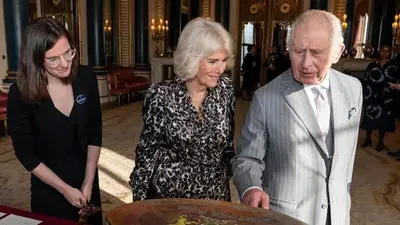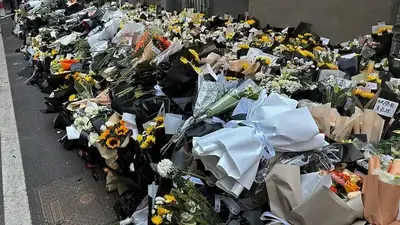World News
Australia steps up calls for US to drop WikiLeaks charges
CANBERRA, Australia -- Australia’s Prime Minister Anthony Albanese said he recently told U.S. President Joe Biden’s administration to bring WikiLeaks founder and Australian citizen Julian Assange’s prosecution to a close.
Albanese’s comments Wednesday to Parliament appear to be an escalation of Australia’s diplomatic pressure on the United States to drop spying charges against the 51-year-old who is resisting extradition from Britain.
“I have raised this personally with representatives of the United States government. My position is clear and has been made clear to the U.S. administration: That it is time that this matter be brought to a close,” Albanese told Parliament.
“This is an Australian citizen," Albanese added. "I don’t have sympathy for Mr. Assange’s actions on a whole range of matters, but … you have to reach a point whereby what is the point of … continuing this legal action which could be caught up now for many years into the future?”
Albanese did not say whether he discussed Assange directly with Biden when the pair held a bilateral meeting on the sidelines a Cambodian summit two weeks ago. But Albanese said he had advocated for Assange “recently in meetings.”
Albanese compared Assange’s treatment to that of former U.S. Army intelligence analyst Chelsea Manning, who the prime minister said was "now able to participate freely in U.S. society.”
U.S. prosecutors allege Assange helped Manning steal classified diplomatic cables and Military files that WikiLeaks later published, putting lives at risk. Then-U.S. President Barack Obama commuted Manning’s 35-year sentence to seven years, which allowed her release in 2017.
International news outlets that cooperated with WikiLeaks to publish confidential U.S. State Department cables in 2010 — The New York Times, The Guardian, Le Monde, El Pais and DER SPIEGEL — published an open letter this week calling for Assange’s prosecution to be dropped.
Albanese spoke in response to independent lawmaker Monique Ryan's question if the Australian government would intervene to bring Assange home.
Albanese’s government has been circumspect about Assange’s prosecution since it was elected in May. Ministers’ criticisms have been restrained to phrases such as the case had “dragged on for too long.”
When the British government approved Assange’s extradition in June, Albanese resisted calls that he publicly demand the United States drop the prosecution.
“There are some people who think that if you put things in capital letters on Twitter and put an exclamation mark, that somehow makes it more important. It doesn’t,” Albanese at the time.
“I intend to lead a government that engages diplomatically and appropriately with our partners,” Albanese added.
-

 World News2h ago
World News2h agoWorld’s Best Brands – India
-
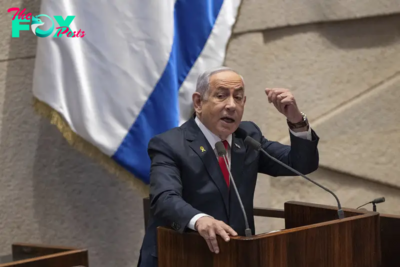
 World News7h ago
World News7h agoInternational Criminal Court Issues Arrest Warrants for Netanyahu and Hamas Commander
-

 World News17h ago
World News17h agoLandmark Bill to Ban Children From Social Media Introduced in Australia’s Parliament
-

 World News17h ago
World News17h agoAmerican and Australian Tourists Die in Laos After Drinking Tainted Alcohol
-
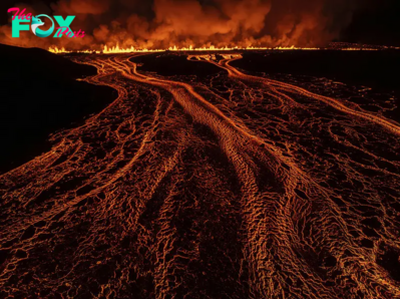
 World News23h ago
World News23h agoSee Photos of the Seventh Volcanic Eruption on Iceland’s Reykjanes Peninsula in 12 Months
-

 World News23h ago
World News23h agoMuhammad Yunus on the Race to Build Bangladesh 2.0
-
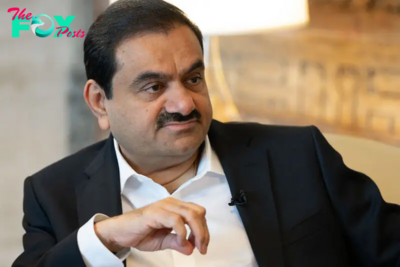
 World News1d ago
World News1d agoU.S. Charges Indian Billionaire Gautam Adani With Defrauding Investors
-

 World News1d ago
World News1d agoU.S. Vetoes U.N. Resolution Demanding a Cease-Fire in Gaza




